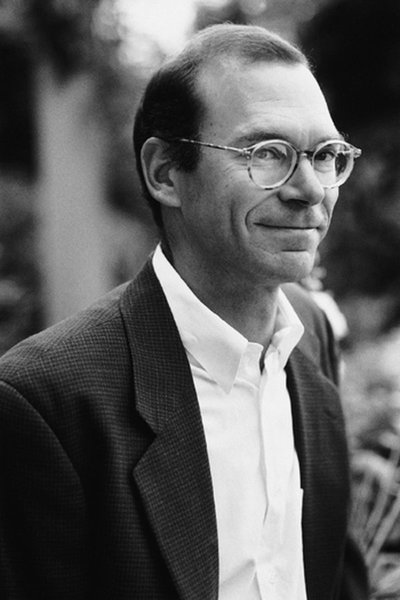November 15, 2007
Award-winning nonfiction writer David Laskin will speak on Nov. 16
David Laskin will provide a behind-the-scenes look at the writing life when he speaks at 7 p.m. Friday, Nov. 16, in 101 Suzzallo. Laskin is the recipient of this year’s Maxine Cushing Gray Visiting Writers Fellowship at UW Libraries.
“The fellowship came as a complete surprise; I didn’t even know what it was,” Laskin said. “But the more I learn about Maxine Cushing Gray, the more honored I feel to have won this award.”
Gray was a prominent Northwest critic and editor for nearly 40 years who worked for the Seattle Post-Intelligencer and Argus, and was the founding editor/publisher of Northwest Arts. Her extensive papers are held by University Libraries.
Laskin is a nonfiction writer whose books span a wide variety of topics — from gardening to parenting to weather. He’s probably best known, however, for The Children’s Blizzard, a 2004 book about a deadly 1888 storm that killed hundreds of children on their way home from school. The book won the Washington State Book Award in 2005.
Laskin learned about the blizzard when he wrote his first book about weather, Braving the Elements: The Stormy History of American Weather. He did a chapter in that book on weather in the West, and found many accounts of the storm, which struck hardest in South Dakota and Nebraska.
“I kind of jokingly describe The Children’s Blizzard as Little House on the Prairie meets The Perfect Storm,” Laskin said. “It was the traumatic blizzard of the late pioneering period.”
He began his research on the book at the Nebraska State Archives and went from there — gathering a lot of personal stories and weaving them into a dramatic tale that brought an avalanche of response. “I think I can safely say that for every single person I wrote about in that book, someone connected with them has called me or written me and said this was my aunt, or this was my grandmother, and so on,” Laskin said. “That was really fun for me as a writer.”
He’s written one other book about the weather — Rains All the Time — which is, of course, about the Northwest.
Why all these books about the weather? Laskin admits to being a “weather nut,” saying he watches the Weather Channel and is fascinated with what causes various weather phenomena. And he’s grateful to UW atmospheric scientists for their help along the way.
“I’m not a meteorologist, I have no training, I never even took 101,” Laskin said. “I don’t have the expertise but I do have the ability to listen, to digest and to make information clear to readers. And the scientists were just great about walking me through that blizzard and telling me the dynamics, what was going on in the atmosphere and relating it to what people experienced on the ground.”
Laskin finds Northwest weather particularly interesting, perhaps in part because he isn’t from here. He grew up on Long Island and spent a number of years on the East Coast, earning his undergraduate degree in English at Harvard and working in New York City — first in publishing, then as a freelance writer.
He describes his career as “cobbled together.” As a teenager he became enthralled with writing after reading Ernest Hemingway’s A Movable Feast and as he got older, “writers were my gods,” but he considered it too presumptuous to say, as an undergraduate, that he intended to be a writer. He started off in publishing after graduate studies at Oxford because he didn’t know what else he could do with an English degree.
But he didn’t much like publishing, and left after 18 months with some freelance editing projects to do and the promise that he could come back if he chose to. In the first few years on his own he wrote two novels that have never been published, but he also had success with nonfiction, and that’s what he’s done ever since.
Laskin came to Seattle in 1993, when his wife, Kate O’Neill, got a job offer at the UW School of Law. “I’ve felt very welcomed here, as a writer and as a person,” he said. “The sense of being a writer among writers happened very quickly.”
He also praised the UW library system, as well as Seattle’s and King County’s, calling them world class. The Gray Fellowship brings with it a $5,000 stipend and an office in Suzzallo Library, which he’ll use as he researches his next book. That book is not about the weather; it’s about the immigrant experience in World War I. Laskin said he’s always been fascinated with that period in history, and as the grandson of immigrants, he’s been interested in writing about immigration.
“Then it dawned on me that I could do both at the same time,” he said. “The research so far has been incredibly engrossing.”
Laskin said he’s enjoyed preparing his talk, in which he’ll discuss how his career developed. “It’s something I never would have written without the fellowship and it’s really opened me up into a new vein, which is memoir,” he said. “Not that I’m going to join the great bandwagon, but I was telling someone, I’ve never written in the first person before this. I don’t like it. It’s felt phony or like I’m putting on an act or something. But this whole speech is very first person and it’s been fun.”
The speech is free and open to the public, but reservations are recommended. To register, call 206-616-8397 or e-mail uwlibs@u.washington.edu.

